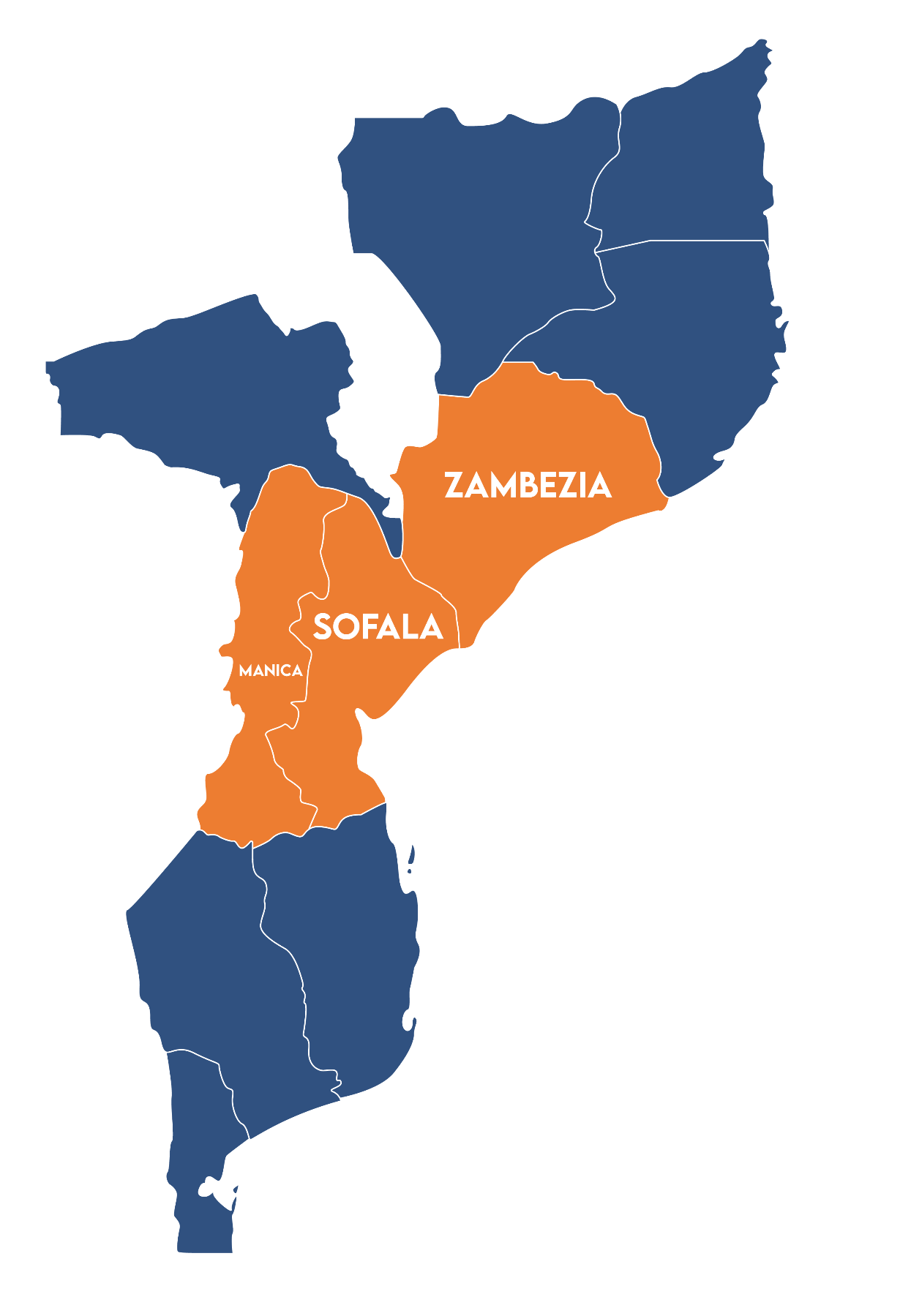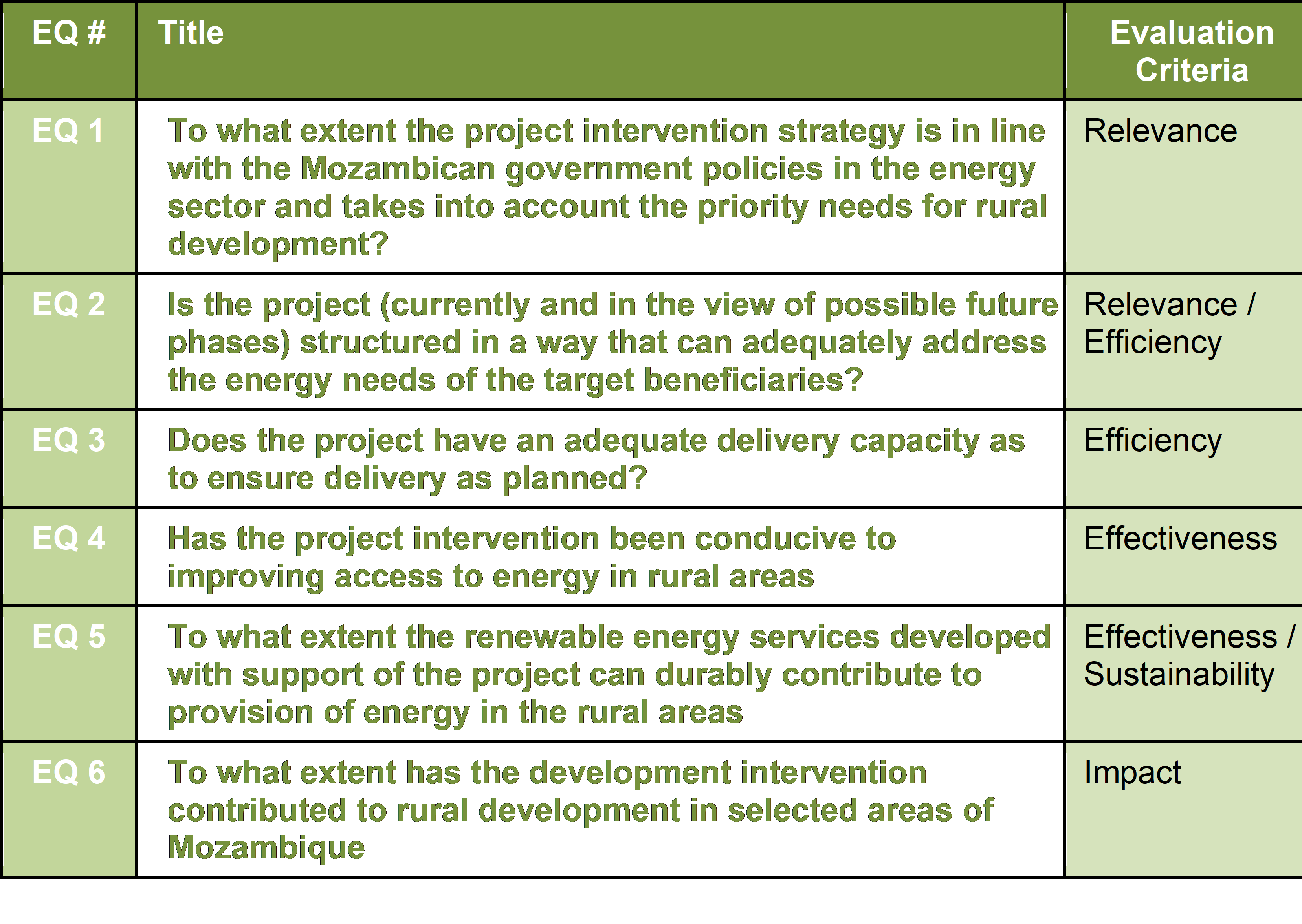The Renewable Energy for Rural Development in Mozambique project focused on developing off-grid renewable energy systems (hydroelectric, solar and wind) in remote rural areas where connections to the national grid were not expected in the following 5 years. The project, funded by the Belgian Development Agency (BTC) and with a total budget over €23 million, provided funds for electrical systems for community infrastructures such as administrative buildings, schools, health centres, water pumps and public lighting. The aim was also to promote a viable renewable energy installation market for private use. Additionally, the project provided support for capacity development, mainly to the Fundo Nacional de Energia (FUNAE), and creating successful institutional partnerships.
With the End-term Review of the Intervention (2015) of the Renewable Energy for Rural Development project, NTU was in charge of providing an in-depth evaluation of the intervention's performance, the implementation process, the achieved results, and its monitoring system. NTU's services were used to answer questions on strategic alignment, project design and structuring, project implementation, access to energy enhancement, energy services sustainability and rural development.

How we did it
NTU carried out an evaluation through a comprehensive and systematic approach. The assessment was integrated into a dynamic of continuous reflection and followed the OECD DAC evaluation criteria, in addition to other dimensions beyond the technical aspects, such as local actors' commitment, relational quality and partnership. The assessment ensured a participatory process from beginning to end by consulting all stakeholders, inclusive service users.
During the Inception and Desk Phase, NTU went through documentary analysis and a series of briefings and meetings with BTC, FUNAE, beneficiaries and other stakeholders to gain insights about the project. Then, NTU carried-out site visits within the Field Phase, to collect and analyse data in the field. The preliminary findings were tested against the situation on the ground. During the Synthesis Phase, the findings from the desk phase and the field visits were reviewed in detail and triangulation and cross checking of data and evidence were performed. A Final Project Evaluation Workshop was carried out to discuss the evaluation framework, the assessment criteria and the evaluation findings in relation to the different components of the Renewable Energy for Rural Development project. The evaluation findings were based on relevance, efficiency, efficacy, sustainability, impact and cross-cutting themes such as gender and environment. NTU provided conclusions and recommendations based on its evaluation and captured all the information in a comprehensive Final Report.

Overview of the Generic Evaluation Questions
Impact
NTU's work has contributed to improve practices, to adapt and develop better sectoral policies, and to create institutional memory at partner stakeholder level. The valuable evaluation performed by NTU guided BTC and FUNAE to reflect on the project and to capitalise knowledge that could be later applied on further projects to increase access to energy in rural areas in Mozambique.
In particular, the following positive impacts can be named:
- Supporting steering. On the basis of in-depth analyses, the Review offered evidence-based recommendations that was essential for the planning and formulation process of the next project. That way, it supported the strategic decision making for interventions to come.
- Contributing to learning. By analysing the development process, the Review explained what worked, what did not work and why, and will thus enabled to draw lessons for new interventions and for the elaboration of new policies, strategies and programmes. The learning aspect of the Review required a specific focus in order to draw useful lessons for the formulation process of RERD II, that was upcoming, and partly for the foreseen capacity building interventions for MIREME and FUNAE.
- Demonstrating accountability to the donor, partner and other internal actors by supplying an external assessment of the progress made and the results
